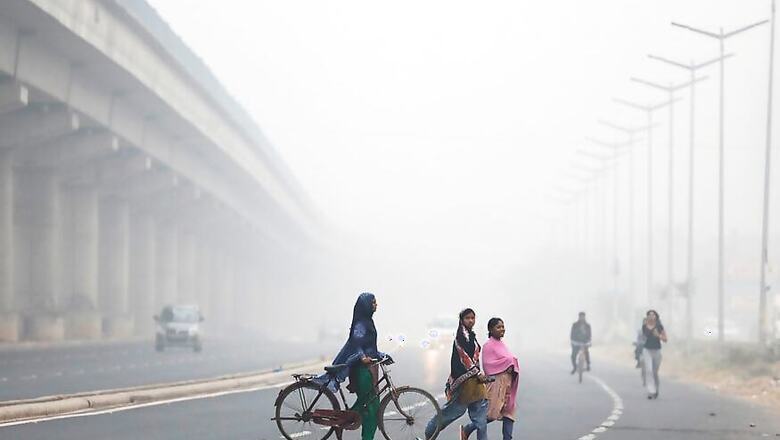
views
New Delhi: Deputy Chief Minister of Delhi Manish Sisodia announced that primary schools in the state will be shut on Wednesday due to high air pollution.
The state government may reintroduce its odd-even scheme to regulate vehicular movement, Sisodia added. Under the formula, odd and even numbered vehicles ply on alternate days.
"Primary schools in Delhi, including private ones, will remain closed tomorrow. We are monitoring the situation on an hourly basis and a further decision on the measures will be taken on Thursday," he told PTI.
This comes after Delhi Chief Minister Arvind Kejriwal asked Sisodia to consider shutting schools for a few days after the air quality dropped to the "severe" category on the air quality index in Delhi.
The Delhi government has also issued health advisories for high-risk groups, including children and elderly, saying that they should avoid outdoor activities.
Meanwhile, a number of schools in Delhi have suspended outdoor activities and advised parents to ensure their children wear masks.
All primary schools will remain closed tomorrow, if needed will extend order till day after: Manish Sisodia,Delhi Minister #delhipollution pic.twitter.com/y1nlvwn8rv— ANI (@ANI) November 7, 2017
DON'T STEP OUT, CUT DOWN OUTDOOR ACTIVITY: DOCTORS' ADVICE
Doctors in the national capital have advised residents to avoid stepping out or indulging in outdoor activities during the early morning and evening hours in view of "severe" levels of air pollution in the city.
AIIMS Director Dr Randeep Guleria, a renowned pulmonologist, termed the situation a "public health emergency" and stressed the need for initiating a movement to protect the environment.
He advised the elderly, children and patients with respiratory and cardiac problems to avoid strenuous activity, which leads to inhalation of greater volumes of minute pollutants, early in the morning or late in the evening.
Considering high level of pollution, I have requested Sh Manish Sisodia, Education Minister, to consider closing schools for a few days— Arvind Kejriwal (@ArvindKejriwal) November 7, 2017
"Pollutants get trapped closer to the ground when the temperature is low and there being no wind, it is in its peak, especially in the early morning and late evening hours. "It is better to go out when it's bright and sunny," he said.
Associate Professor of pulmonary medicine at AIIMS, Dr Karan Madan, said lungs of the elderly and children are less capable of handling such high levels of pollutants and thus they develop breathing difficulty.
"It is not just limited to lungs. It can also affect the cardio-vascular system and the brain," he said. Professor and head of pulmonary medicine at Safdarjang Hospital Dr J C Suri said inhalation of air toxins causes infections and swelling of the airway.
"The immediate effects are cough, throat infections and pneumonia, but one can also develop lung cancer," the doctor said.
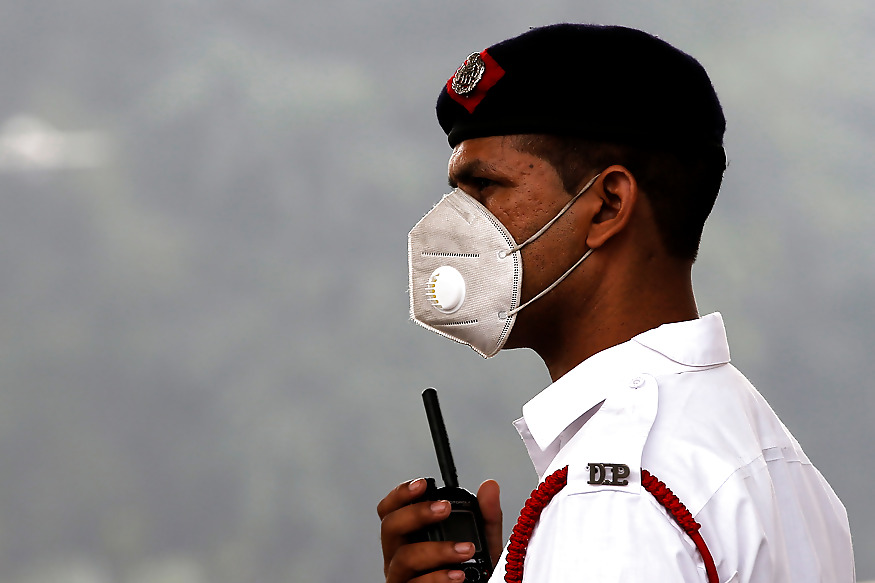
A traffic policeman wearing a mask controls the traffic at a busy road on a smoggy morning in New Delhi. (Photo: Reuters/Saumya Khandelwal)
"Also, when pollution levels rise, the condition of those suffering from Chronic Obstructive Pulmonary Disease (COPD) or asthama worsens," he said.
CISF ISSUES 15,000 MASKS TO PERSONNEL
With air quality deteriorating, the CISF on Tuesday ordered over 15,000 masks for its personnel deployed at IGI Airport, Delhi Metro and other government installations in Delhi and NCR region and said they would be provided prompt medical assistance in case of breathing trouble.
The decision was taken after Central Industrial Security Force (CISF) Director General O.P. Singh ordered for distribution of masks to all men and women of the paramilitary force while on duty.
"There is a proposal to distribute over 15,000 masks. A total of 8,000 masks are being distributed only in Delhi Metro, 5,000 at Indira Gandhi International (IGI) Airport and around 2,500 at other government installations," CISF Spokesperson Hemendra Singh said.
The CISF -- which is tasked to guard IGI Airport, Delhi Metro and several government departments and ministries in the National Capital Region (NCR) -- had undertaken a similar measure in November last year when the air quality was bad in Delhi and NCR.
"At least 2,000 masks have been distributed to CISF personnel deployed at Delhi Metro and remaining 6,000 masks will be provided by evening. Similarly, CISF personnel at IGI airports, government building and other units are also being provided masks and they will wear it till air quality improve," Singh said.
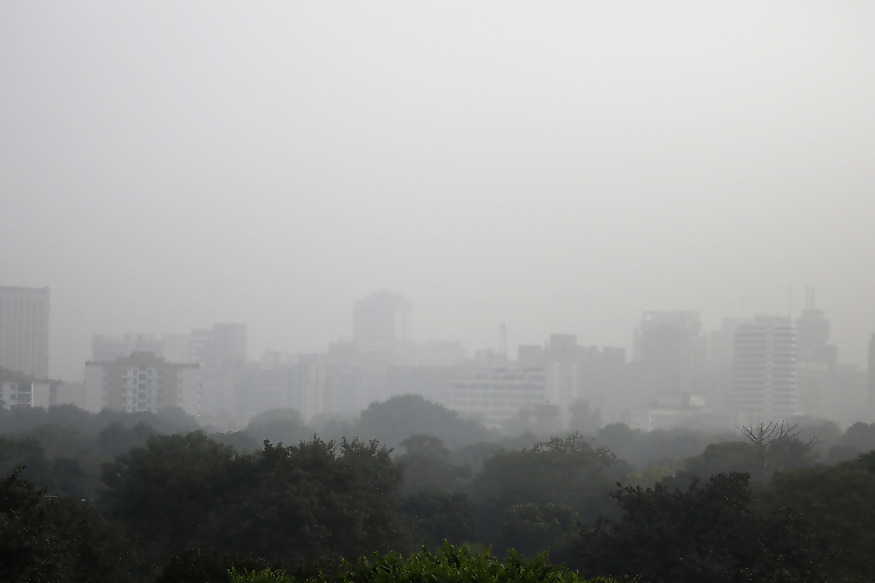
Smog envelops the skyline at noon in New Delhi, India, Tuesday, November 7, 2017. (AP Photo/Altaf Qadri)
He said the CISF will also render medical assistance to its personnel at airport, Delhi Metro and government building having breathing trouble.
The NCR on Tuesday saw its worst 'air quality' and 'smog situation' of the year – which was even worse than a day after Diwali, as a yellow blanket of smog hung heavily in the sky. The pollution level rose to dangerous levels, with 18 out of 21 active pollution monitoring stations recording 'severe' air quality.
(With agency inputs)











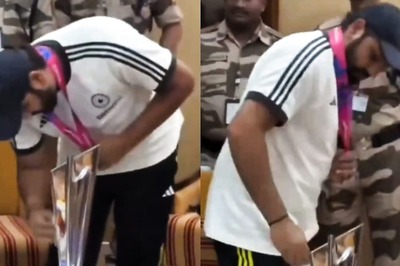



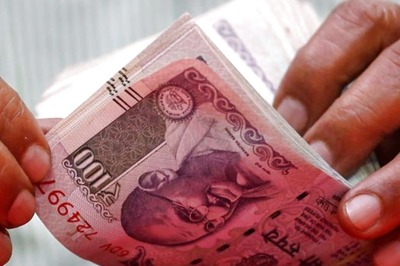
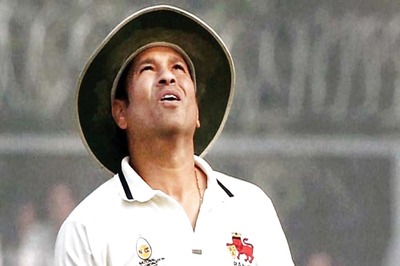
Comments
0 comment